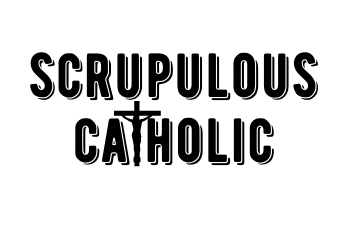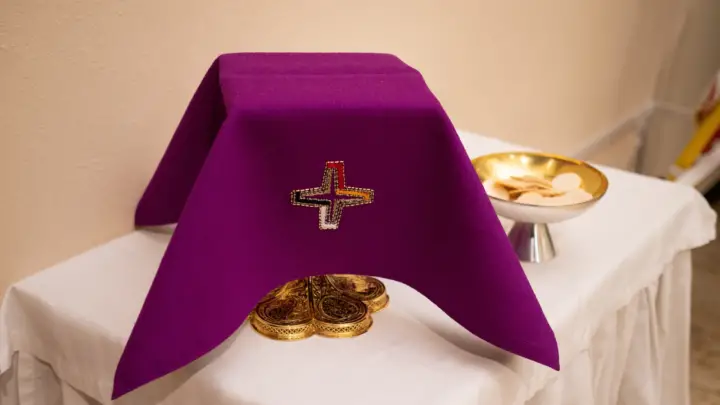If you are a Catholic who underwent divorce, you may be wondering if you are still able to receive Holy Communion. This is a question that has been debated within the Catholic community, with varying views and opinions. In this blog post, we will explore the teachings of the Catholic Church on divorce and the Eucharist, examine differing perspectives, and give steps for divorced Catholics seeking to receive the Sacrament.
The Sacrament of Holy Matrimony
To start off, let’s discuss the importance of the Sacrament of Marriage.
Based on the Catechism of the Catholic Church,
CCC 1601 The matrimonial covenant, by which a man and a woman establish between themselves a partnership of the whole of life, is by its nature ordered toward the good of the spouses and the procreation and education of offspring; this covenant between baptized persons has been raised by Christ the Lord to the dignity of a sacrament.
Marriage is not just a contract, it is a covenant made between a man and a woman, blessed by God.
When a couple marries, they are making a vow not just with each other but also with God to love and honor one another for the rest of their lives regardless of circumstances.
It is a vocation that requires a lifelong commitment to build a loving relationship. It reflects love and unity between Christ and His Church, a bond that is unbreakable.
Divorce
A divorce is a dissolution of a valid marriage.
According to the Catechism,
CCC 2384 Divorce is a grave offense against the natural law. It claims to break the contract, to which the spouses freely consented, to live with each other till death. Divorce does injury to the covenant of salvation, of which sacramental marriage is the sign. Contracting a new union, even if it is recognized by civil law, adds to the gravity of the rupture: the remarried spouse is then in a situation of public and permanent adultery: If a husband, separated from his wife, approaches another woman, he is an adulterer because he makes that woman commit adultery, and the woman who lives with him is an adulteress, because she has drawn another’s husband to herself.
Clearly, the Church views divorce as a grave sin.
Holy Communion
The Eucharist is another Sacrament of the Catholic Church. Through It, we, Catholics receive the Body and Blood of Jesus Christ.
According to the Catechism,
CCC 1324 The Eucharist is “the source and summit of the Christian life.” “The other sacraments, and indeed all ecclesiastical ministries and works of the apostolate, are bound up with the Eucharist and are oriented toward it. For in the blessed Eucharist is contained the whole spiritual good of the Church, namely Christ himself, our Pasch.”
It is important to remember in order to receive the Eucharist, one must be in a state of grace.
CCC 1415 Anyone who desires to receive Christ in Eucharistic communion must be in the state of grace. Anyone aware of having sinned mortally must not receive communion without having received absolution in the sacrament of penance.
To be in a state of grace, one who committed a mortal sin must confess first. If not, it is another mortal sin.
Receiving Holy Communion for Divorced Catholics
Now that we already know how valuable the Sacraments of Marriage and the Eucharist are, let’s answer the question.
Can a Divorced Catholic Receive Holy Communion?
It depends. If a divorced Catholic does not enter into another marital relationship and remains chaste, then they can receive the Holy Communion, otherwise, they cannot because their previous marriage is still valid and they are committing adultery.
While the Church’s teaching on divorce and Holy Communion can be hard to reconcile, it is intended to uphold the sanctity of marriage as a sacred institution and ensure that the Sacraments are received in a state of grace.
Perspectives
There are two opposing perspectives on this matter. One perspective is that the Sacrament of Matrimony is a lifelong bond, and divorce goes against that. Thus, divorced Catholics should not be allowed to receive the Eucharist unless their marriage is annulled. This viewpoint highlights the importance of upholding Church doctrine and maintaining the sanctity of sacramental participation.
However, others argue that the Church should take into account the realities of divorce and the impact it can have on individuals. They voice out that divorced Catholics should still be able to receive Sacraments despite their marriage has ended. Instead, the Church should support and guide divorced individuals to continue their spiritual journey.
Moreover, some believe that the Church should consider the situation of each individual case when determining sacramental eligibility. For example, if an individual has been abandoned by their spouse or experienced abuse in their marriage.
Overall, there is no consensus among Catholics regarding the issue of divorced individuals receiving the Eucharist. It is a complicated and exhausting topic that encourages discussion and understanding within the community.
Options for Divorced Catholics
If you underwent a divorce and have not received an annulment, there are still some options available. The first step is to seek reconciliation through the Sacrament of Confession. Confession allows you to repent and receive God’s forgiveness, which can help you restore your eligibility for receiving Holy Communion.
In addition, you may consider seeking guidance from your local Priest to help you explore the complexities of divorce and its effect on your sacramental participation. They may be able to provide you with resources that can help you further on your journey.
Pastoral Guidance
For those who are divorced and want to receive Holy Communion, seeking pastoral care and guidance is an essential step. Priests, Spiritual Directors, and support groups can be of help.
They can provide you with information on annulment and other pathways to reconcile with the Church.
Furthermore, counseling and joining a support group can help you process any emotional or psychological trauma associated with divorce. They can assist you in coping with the challenges.
Conclusion
After exploring the question of whether a divorced Catholic can receive Holy Communion, it is clear that despite the answer is simple and straightforward, it can be perplexing as well.
It is still best to consult with the Priest and ask for guidance regarding this sensitive matter. By this, you can be sure that you are on the right path of healing, emotionally and spiritually.
Loving Mother, pray for us.

